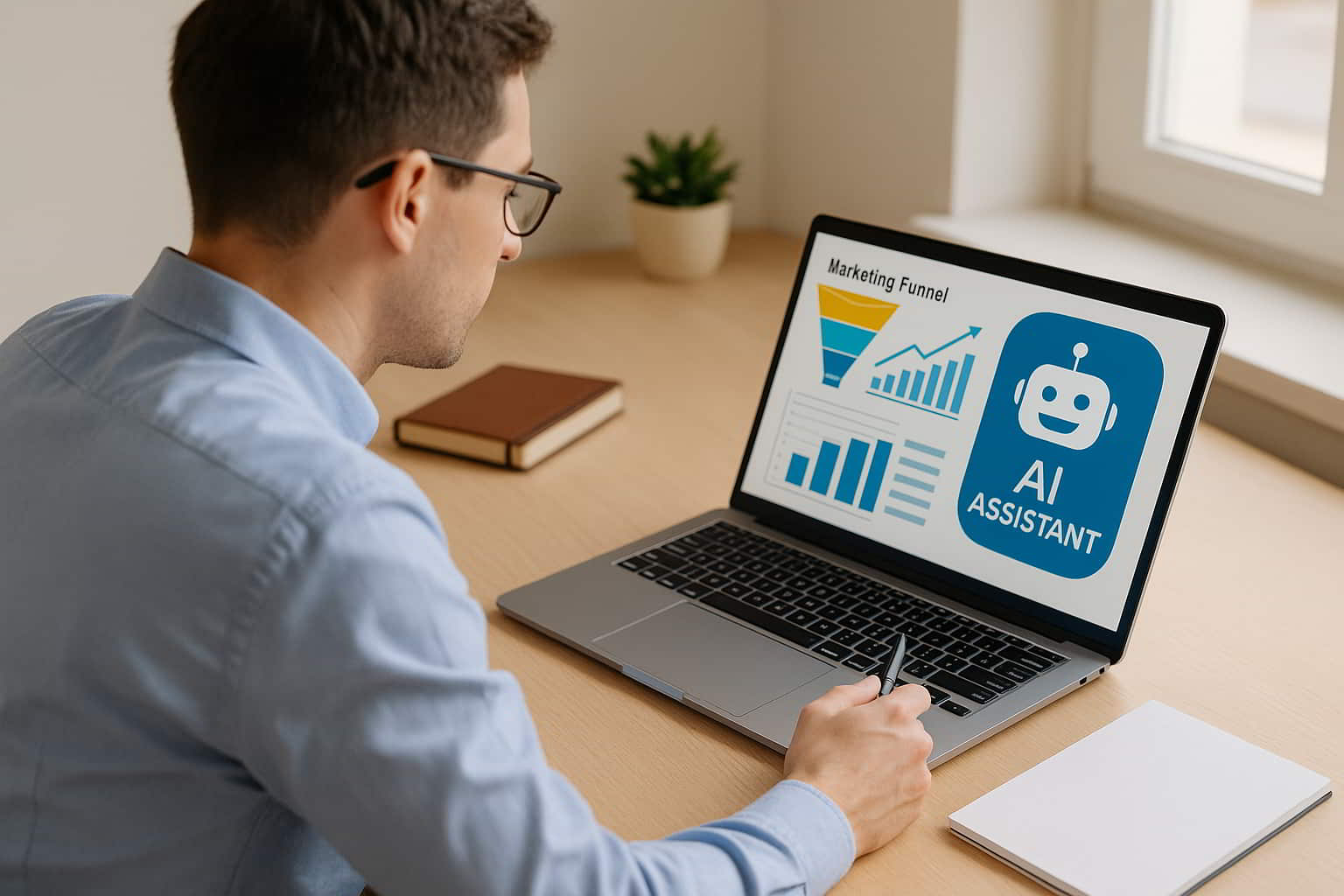The Rise of AI-Powered Funnels
A few years ago, marketing automation meant scheduling emails and segmenting audiences. In 2025, artificial intelligence has completely changed how funnels work.
Modern tools can predict customer intent, personalize offers in real time, and even create the content that drives conversions.
For small and mid-sized businesses, AI has become the silent partner that transforms manual processes into efficient, data-driven systems.
Stage 1: Smarter Lead Generation
Predictive targeting
AI analyzes massive datasets such as demographics, browsing behavior, and purchase history to find people most likely to buy. Instead of guessing, marketers can focus budgets where they bring real results.
Conversational lead capture
Chatbots and virtual assistants no longer just answer questions. They qualify leads by asking contextual questions, gathering contact information, and scheduling calls or demos instantly.
Content generation for awareness
AI content tools create blog posts, landing pages, and ads tailored for SEO and engagement. This lets teams scale outreach faster and lower acquisition costs.
Stage 2: Lead Nurturing With Personalization
Adaptive email journeys
Today’s email platforms adjust messages automatically based on user actions. If a person opens but does not click, the system changes tone or timing. When someone downloads a guide, they receive a more advanced offer.
Predictive scoring
AI models rank leads using dozens of signals such as session time, visit frequency, or device type. Sales teams can focus on the most promising prospects instead of chasing everyone.
Content recommendation engines
AI recommends content that fits each visitor’s stage in the journey. The experience feels personalized and keeps users engaged longer.
Stage 3: Conversion and Beyond
Dynamic offers
AI tools adapt pricing or promotions based on user profile and activity. Returning visitors might get loyalty perks, while first-timers see welcome deals that improve conversion rates.
Landing page optimization
Instead of manual testing, AI runs experiments, learns which elements perform best, and applies improvements automatically.
Headlines, images, and calls to action are constantly refined for higher conversion.
Post-purchase automation
AI triggers review requests, suggests upsells, and tracks satisfaction to boost long-term retention. The funnel continues even after the sale.
Real Business Impact
Companies using AI in their marketing funnels report:
- Up to 50% faster lead qualification
- 25–35% higher conversion rates
- Lower advertising costs through precise targeting
- Shorter sales cycles due to real-time personalization
Even small steps, like adding AI-driven emails, can bring measurable ROI.
Top AI Tools for Marketing Automation in 2025
| Category | Example Tools | Main Use |
|---|---|---|
| Lead Generation & Ads | HubSpot AI, Marketo, Apollo | Find and capture high-quality leads |
| Chatbots | Intercom, Drift, Tidio AI | Engage visitors and qualify prospects |
| Email Automation | ActiveCampaign AI, Brevo, Klaviyo | Personalize communication and timing |
| Content Creation | Jasper, Copy.ai, Writesonic | Produce copy and visuals automatically |
| Analytics | Google Gemini for Ads, HubSpot Predictive AI | Optimize performance and detect weak spots |
Whether you choose an all-in-one suite or combine smaller specialized tools, the goal is the same: seamless flow from lead generation to long-term retention.
How to Get Started
- Map your funnel. Know where prospects drop off and what can be automated.
- Pick one AI layer at a time. Start with lead scoring or email automation before jumping into full predictive systems.
- Integrate data. AI thrives on context -connect your CRM, analytics, and campaign tools.
- Test, measure, and refine. Let the system learn, but stay involved. Human insight still matters.
- Keep transparency and compliance in mind. Always respect privacy laws and communicate how data is used.
AI isn’t replacing marketers -it’s amplifying them.
Automation takes over the repetitive, mechanical work so creative teams can focus on storytelling, strategy, and connection.
From generating leads to closing deals, AI now fuels every step of the marketing funnel – quietly, efficiently, and constantly learning. The marketers who embrace it aren’t just saving time – they’re building smarter, self-optimizing growth engines for the future.
